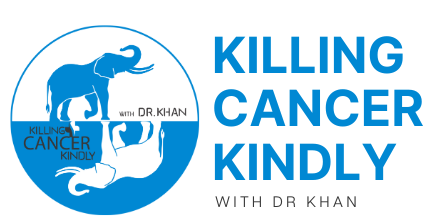Survival rates and outlook
Dealing with a cancer diagnosis is undoubtedly challenging, and when it comes to stage 4 cancer, the journey can be even more overwhelming. Stage 4 cancer, also known as advanced or metastatic cancer, is a critical stage where cancer cells have spread beyond the primary site to other parts of the body. In this article, we will delve into the intricacies of stage 4 cancer, including its definition, symptoms, causes, diagnosis, treatment options, prognosis, and ways to support someone facing this difficult situation.
What is Stage 4 Cancer?
Stage 4 cancer is the most advanced stage of cancer, indicating that the cancer has metastasized or spread from its original location to distant parts of the body. This stage is characterized by the presence of secondary tumor colonies in areas far from the primary site, making it more challenging to treat effectively.
Symptoms of Stage 4 Cancer
Stage 4 cancer may manifest various symptoms depending on the type and location of the primary cancer and the affected organs. Common symptoms include persistent fatigue, unexplained weight loss, severe pain, difficulty breathing, persistent cough, jaundice, and neurological symptoms. It is essential to pay attention to any unusual changes in the body and seek medical attention promptly.
Causes of Stage 4 Cancer
The development of stage 4 cancer is often a result of the progression of cancer from earlier stages. When cancer cells continue to divide uncontrollably and evade the body’s natural defense mechanisms, they can invade nearby tissues and enter the bloodstream or lymphatic system, allowing them to spread to distant organs and tissues.
Diagnosing Stage 4 Cancer
Diagnosing stage 4 cancer involves a series of medical assessments and tests to determine the extent of cancer spread. Imaging tests, such as CT scans, MRIs, and PET scans, help identify tumors in distant areas. Additionally, biopsy samples are taken from affected tissues to confirm the presence of cancer cells and identify the primary source of the cancer.
Treatment Options for Stage 4 Cancer
Treating stage 4 cancer requires a comprehensive approach, aiming to control cancer growth, manage symptoms, and improve the patient’s quality of life. The treatment plan may include surgery, radiation therapy, chemotherapy, targeted therapy, immunotherapy, or a combination of these modalities.
The prognosis for Stage 4 Cancer
The prognosis for stage 4 cancer varies depending on several factors, such as the type of cancer, its stage, the extent of spread, and the patient’s response to treatment. In general, stage 4 cancer is considered advanced and can be challenging to cure completely. However, advancements in medical treatments have improved the outlook for some patients, providing opportunities for prolonged survival and improved quality of life.
How to Support Someone with Stage 4 Cancer
Being diagnosed with stage 4 cancer can be emotionally and physically draining for the individual and their loved ones. As a support system, it’s crucial to provide care, empathy, and understanding. Here are some ways to support someone with stage 4 cancer:
- Offer Emotional Support: Listen actively and be present for them. Allow them to express their feelings without judgment.
- Assist with Practical Needs: Help with daily tasks, such as cooking, cleaning, or running errands, to ease their burden.
- Research Treatment Options: Assist in researching potential treatments and doctors, offering support in making informed decisions.
- Accompany Medical Visits: Offer to accompany them to medical appointments to provide moral support.
- Stay Positive: Encourage a positive outlook and engage in activities that bring joy and distraction.
- Respect Their Wishes: Understand and respect their decisions regarding treatment and lifestyle choices.
- Connect with Support Groups: Encourage them to join support groups to connect with others going through similar experiences.
- Celebrate Milestones: Celebrate small victories and milestones in their cancer journey.
- Offer Practical Gifts: Provide practical gifts like books, cozy blankets, or soothing teas to enhance their comfort.
- Be Available: Let them know you are available to talk or lend a helping hand whenever needed.
Conclusion
Facing a diagnosis of stage 4 cancer is undoubtedly a challenging and emotional journey. However, with the support of loved ones and advancements in medical treatments, patients can find hope and comfort amidst their battle. Understanding the symptoms, causes, diagnosis, treatment options, and prognosis for stage 4 cancer is crucial in navigating this difficult path. By providing empathy, care, and practical support, we can make a positive difference in the lives of those facing this formidable challenge.


